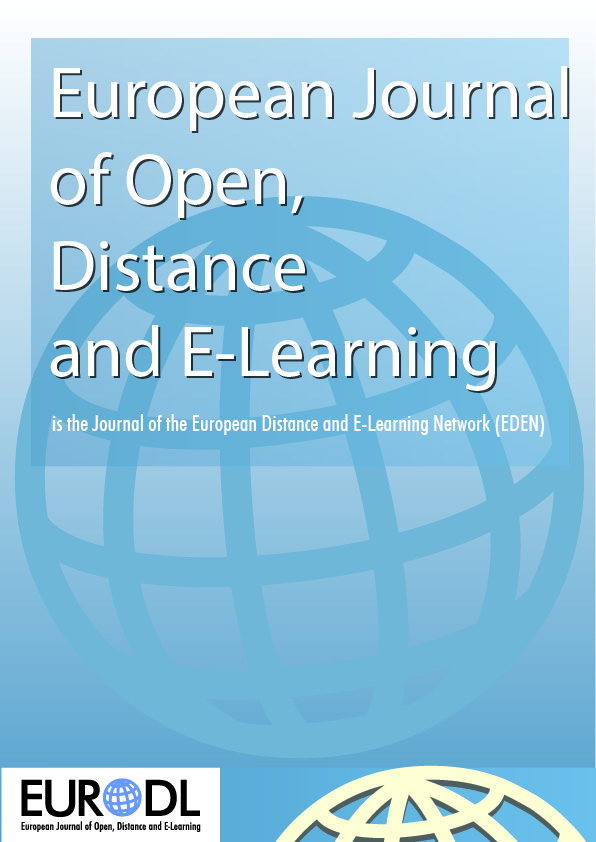Examining Faculty Readiness to Teach Online: A Comparison of US and German Educators
Examining Faculty Readiness to Teach Online: A Comparison of US and German Educators
Author(s): Florence Martin, Chuang Wang, Annika Jokiaho, Birgit May, Sonja GrübmeyerSubject(s): Social Sciences, Education, Higher Education
Published by: European Distance and E-Learning Network
Summary/Abstract: With the increase in the number of online courses being offered, it is important for faculty to be prepared to teach online. In this study, we examine US and German faculty perceptions on their preparedness to teach online based on the perception of importance of teaching online competencies and their efficacy to teach online. We also examine factors (gender, age, country located, academic discipline, academic rank, method of teaching, years of teaching, years of teaching online and level taught) that are related to US and German faculty perception of the importance and efficacy of online teaching. Overall, the US faculty rated the competencies higher compared to the German faculty both in perception of importance and self-efficacy. Significant differences in the perception of the importance of competencies were noted based on gender, training, level taught, rank, and age. For self-efficacy, there were significant differences between the faculty in teaching format (synchronous, asynchronous or hybrid format), years of teaching online, and age. This study has implications for instructors who teach online, for instructional designers who offer professional development for online teaching and for administrators who support online learning at the universities.With the increase in the number of online courses being offered, it is important for faculty to be prepared to teach online. In this study, we examine US and German faculty perceptions on their preparedness to teach online based on the perception of importance of teaching online competencies and their efficacy to teach online. We also examine factors (gender, age, country located, academic discipline, academic rank, method of teaching, years of teaching, years of teaching online and level taught) that are related to US and German faculty perception of the importance and efficacy of online teaching. Overall, the US faculty rated the competencies higher compared to the German faculty both in perception of importance and self-efficacy. Significant differences in the perception of the importance of competencies were noted based on gender, training, level taught, rank, and age. For self-efficacy, there were significant differences between the faculty in teaching format (synchronous, asynchronous or hybrid format), years of teaching online, and age. This study has implications for instructors who teach online, for instructional designers who offer professional development for online teaching and for administrators who support online learning at the universities.
Journal: European Journal of Open, Distance and E-Learning (EURODL)
- Issue Year: 22/2019
- Issue No: 1
- Page Range: 53-69
- Page Count: 17
- Language: English

